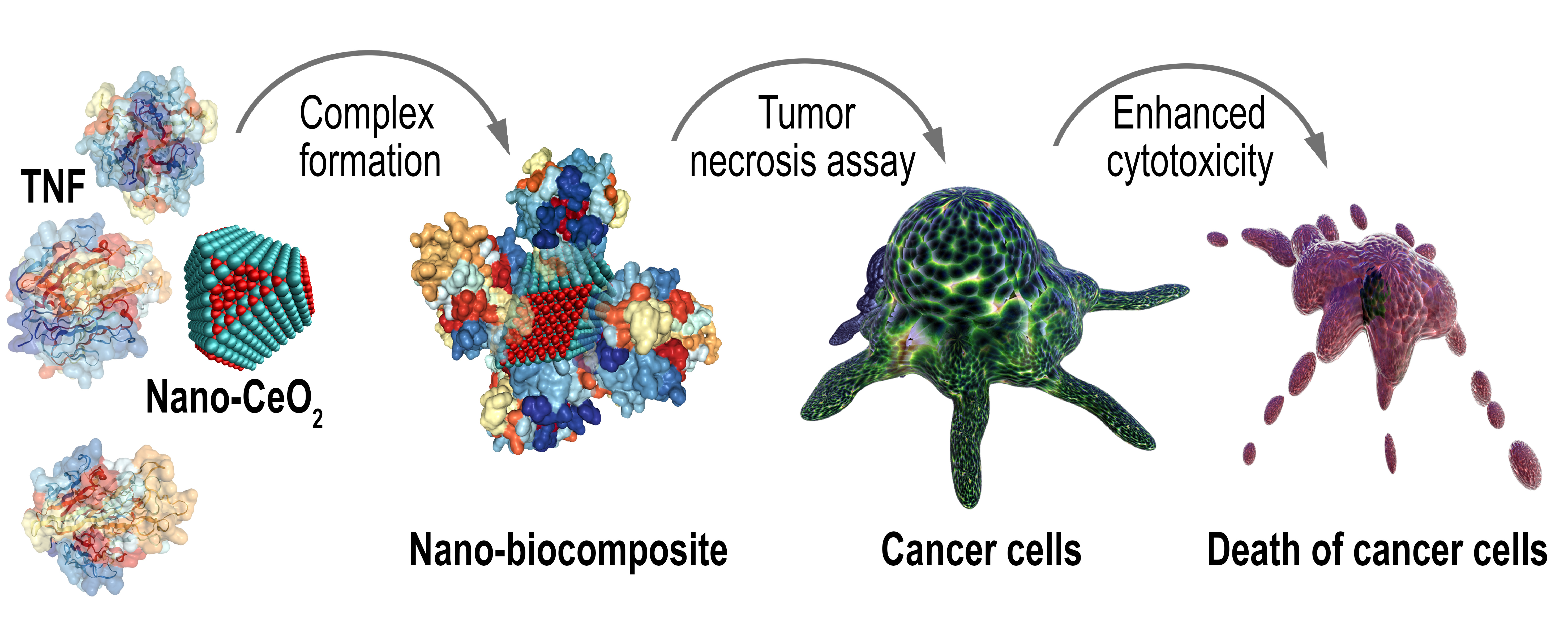NANOSYSTEMS: PHYSICS, CHEMISTRY, MATHEMATICS, 2018, 9 (4), P. 537–543
Cerium oxide nanoparticles increase the cytotoxicity of TNF-alpha in vitro
O. Shydlovska – Zabolotny Institute of Microbiology and Virology NANU, Kyiv, Ukraine; olgashydlovska@gmail.com
E. Kharchenko – National University of Food Technologies, Kyiv, Ukraine; yugin171094@gmail.com
N. Zholobak – Zabolotny Institute of Microbiology and Virology NANU, Kyiv, Ukraine; n.zholobak2018@gmail.com
A. Shcherbakov – Zabolotny Institute of Microbiology and Virology NANU, Kyiv, Ukraine; ceroform@gmail.com
A. Marynin – National University of Food Technologies, Kyiv, Ukraine; andrii_marynin@ukr.net
O. Ivanova – Kurnakov Institute of General and Inorganic Chemistry, Moscow, Russia; runetta05@mail.ru
A. Baranchikov – Kurnakov Institute of General and Inorganic Chemistry, Moscow, Russia; a.baranchikov@yandex.ru
V. Ivanov – Kurnakov Institute of General and Inorganic Chemistry, Moscow; National Research Tomsk State University, Tomsk, Russia; van@igic.ras.ru
Cerium oxide nanoparticles (CeONP) were used as the modifying agent for the recombinant tumor necrosis factor-α and recombinant tumor necrosis factor-α-thymosin-α1 (rhTNF and rhTNF-T). A notable increase of the biological activity of proteins with antitumor effect was demonstrated. It was established that the cytotoxicity of rTNF-T+CeONP composite increases with the duration of exposure to 7 days. Modification of rTNF-T with cerium oxide nanoparticles provides a stronger and more stable cytotoxic effect in Hep-2, L929, and A-549 tumor cell lines.
Keywords: cerium oxide nanoparticles, tumor necrosis factor, nanobiocomposite, biological activity, antitumor effect.
PACS 81.07.Bc, 81.16.Be, 87.14.ef
DOI 10.17586/2220-8054-2018-9-4-537-543
